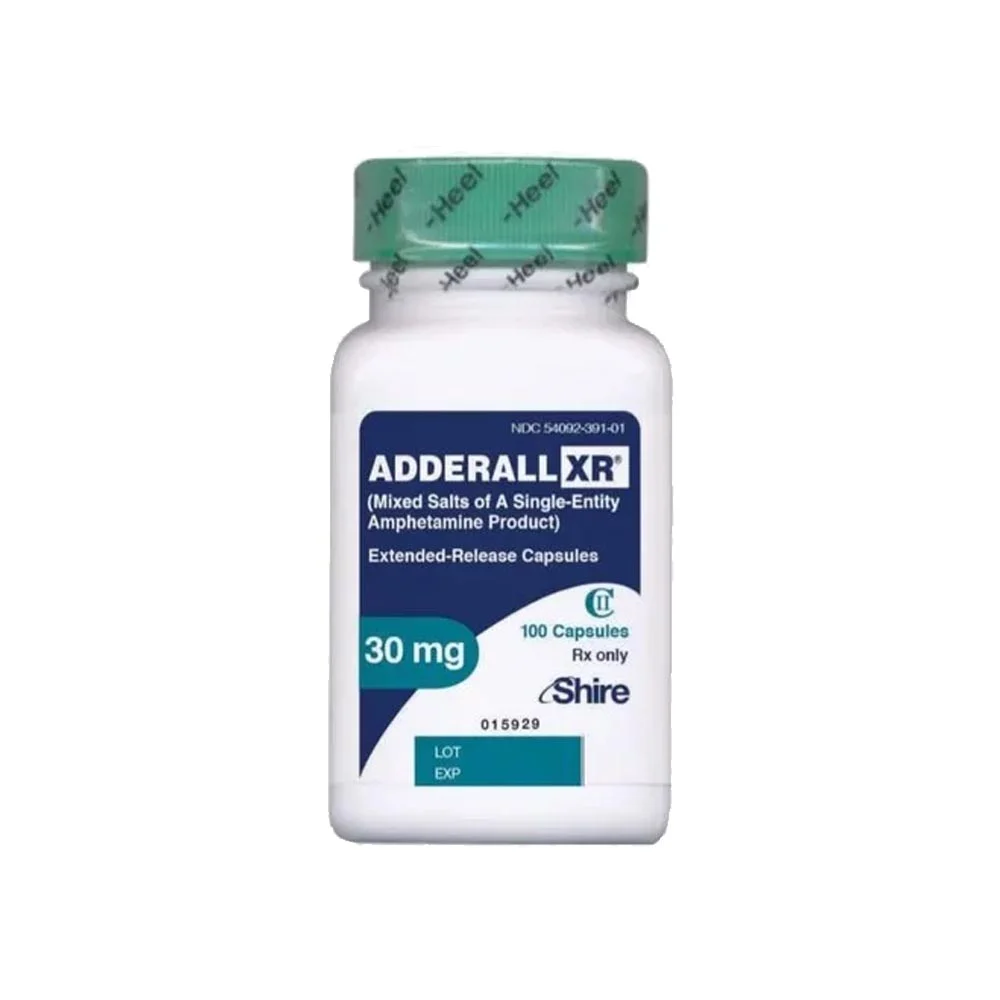
Adderall XR, a prescription medication containing a combination of amphetamine and dextroamphetamine, is primarily used to treat Attention Deficit Hyperactivity Disorder (ADHD) and narcolepsy. The “XR” in its name stands for “extended release,” meaning that it is designed to be released into the bloodstream gradually over time, providing prolonged effects. This article will explore the uses, benefits, side effects, and important considerations associated with 30mg Adderall XR.
What is Adderall XR?
Adderall XR is a central nervous system stimulant that affects chemicals in the brain and nerves that contribute to hyperactivity and impulse control. It is commonly prescribed to children, adolescents, and adults diagnosed with ADHD, helping them manage symptoms such as inattention, hyperactivity, and impulsiveness.
The extended-release formulation allows for once-daily dosing, which can improve adherence to treatment, making it more convenient for patients.
How Adderall XR Works
Adderall XR works by increasing the levels of certain neurotransmitters in the brain, primarily dopamine and norepinephrine. These chemicals play crucial roles in attention, focus, and impulse control. By enhancing their activity, Adderall XR helps individuals with ADHD to maintain focus, regulate behavior, and improve overall cognitive function.
Dosage and Administration
For adults and children over the age of 6, the typical starting dose of Adderall XR is 5 to 10 mg per day. The dosage may be adjusted based on individual response and tolerability, with 30 mg being a common maintenance dose. It is important to take the medication in the morning to avoid insomnia and to follow a healthcare provider’s guidance on dosage adjustments.
Uses of 30mg Adderall XR
- Treatment of ADHD: The primary use of Adderall XR is to help manage symptoms of ADHD. It improves focus, attention span, and impulse control, significantly enhancing daily functioning in academic, professional, and social settings.
- Management of Narcolepsy: In addition to ADHD, Adderall XR is also prescribed to treat narcolepsy, a sleep disorder characterized by excessive daytime sleepiness and sudden sleep attacks. The stimulant properties of Adderall help individuals stay awake and alert during the day.
- Off-Label Uses: Some healthcare providers may prescribe Adderall XR off-label for conditions such as treatment-resistant depression, anxiety disorders, and cognitive enhancement in certain populations. However, these uses should be approached with caution and under close medical supervision.
Benefits of 30mg Adderall XR
- Improved Focus and Concentration: One of the most significant benefits reported by users is enhanced focus and concentration, allowing individuals to complete tasks more efficiently.
- Extended Duration of Action: The extended-release formulation provides effects that can last up to 12 hours, making it suitable for daily activities without the need for multiple doses.
- Better Quality of Life: For many individuals with ADHD, effective treatment with Adderall XR can lead to improved academic and occupational performance, better relationships, and an overall enhanced quality of life.
- Convenience: With once-daily dosing, Adderall XR is easy to incorporate into a daily routine, making it a practical option for those managing ADHD.
Side Effects of 30mg Adderall XR
While many individuals tolerate Adderall XR well, it can cause side effects. Common side effects include:
- Insomnia: Difficulty sleeping is a common issue, especially if the medication is taken too late in the day.
- Decreased Appetite: Many users report reduced appetite, which can lead to weight loss in some individuals.
- Dry Mouth: This is another frequently reported side effect that can be uncomfortable but is generally manageable.
- Increased Heart Rate: Adderall XR can cause palpitations or an elevated heart rate, necessitating monitoring for individuals with pre-existing heart conditions.
- Mood Changes: Some users may experience anxiety, irritability, or mood swings, especially when starting the medication or adjusting the dose.
Important Considerations
- Medical History: Before starting Adderall XR, individuals should discuss their complete medical history with their healthcare provider, including any history of heart problems, high blood pressure, mental health disorders, or substance use.
- Potential for Abuse: As a stimulant, Adderall XR has a potential for abuse and dependence. It is classified as a Schedule II controlled substance, meaning it should be used with caution, especially in individuals with a history of substance abuse.
- Regular Monitoring: Individuals on Adderall XR should have regular follow-ups with their healthcare provider to monitor the effectiveness of the medication and adjust the dose as needed. This helps ensure optimal management of symptoms while minimizing side effects.
- Withdrawal Symptoms: Discontinuing Adderall XR abruptly can lead to withdrawal symptoms such as fatigue, depression, and changes in sleep patterns. Tapering off the medication under a healthcare provider’s guidance is recommended for those who need to stop treatment.
Conclusion
30mg Adderall XR is a widely prescribed medication for managing ADHD and narcolepsy. With its extended-release formulation, it offers sustained effects that can significantly improve focus, attention, and overall quality of life for those affected by these conditions. However, like any medication, it comes with potential side effects and risks that require careful consideration and monitoring. By working closely with healthcare providers, individuals can navigate the challenges of ADHD and make informed decisions about their treatment options.





